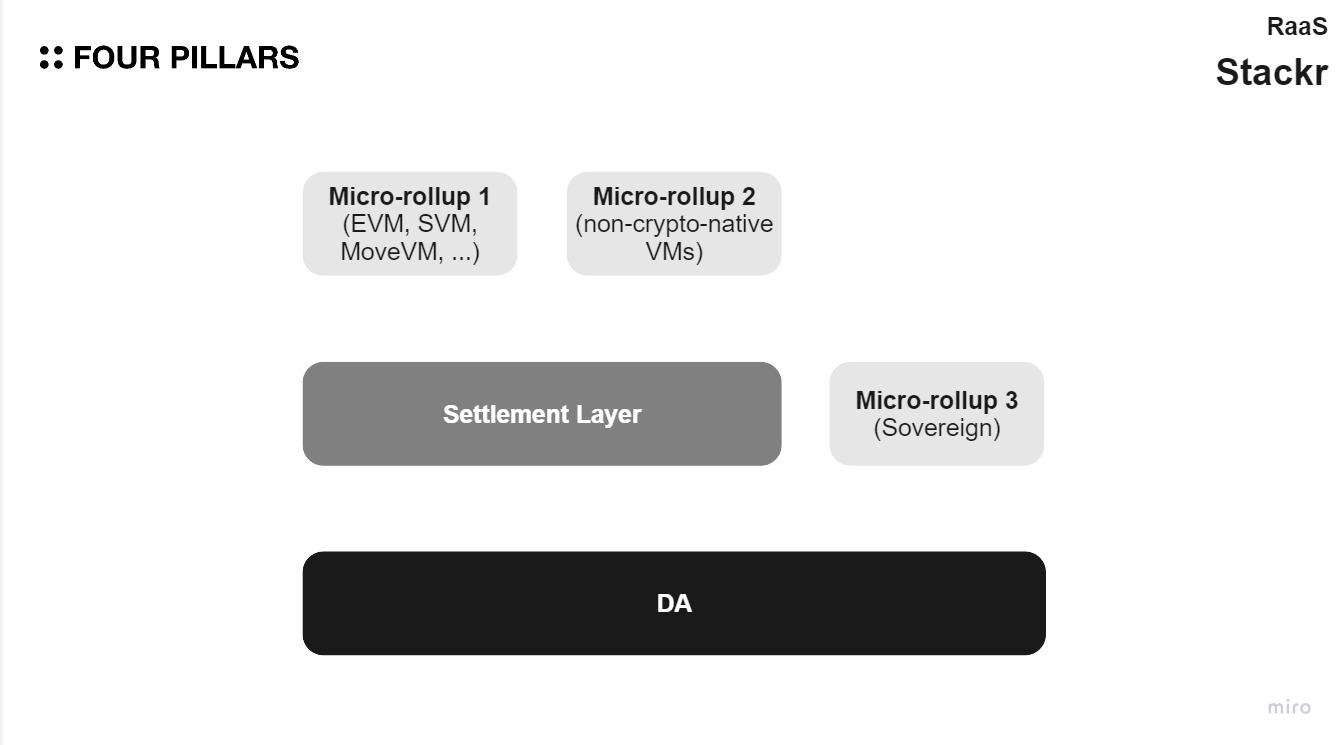Stackr
Key Takeaways
- Stackr provides RaaS framework for building micro-rollups with various programming languages.
- Since not all applications have to achieve full decentralization, Stackr’s micro-rollups can help implement some of the services on-chain.
1. Overview

The Stackr SDK is a framework for building app-specific micro-rollups in web2 programming languages. As micro-services architecture in web2, Stackr aims to introduce a similar design philosophy through micro-rollups, where individual functions within a decentralized app are developed.
2. Execution
The interesting thing is Stackr SDK doesn't intend to limit its runtime environment to crypto-native VMs like EVM, SVM, and MoveVM. Stackr sees a rollup as "a function over an input array" and aims to support any finite state machine. Accordingly, Stackr SDK's VM allows developers to use a variety of programming languages such as Python, JavaScript, Go, C, and so on. For sequencing, both centralized and decentralized approaches will be supported.
3. Settlement
The Stackr SDK will be as flexible as possible regarding proofs (fraud and validity) and rollup types (smart contract and sovereign).
4. Use Cases
Sometimes, putting entire apps onchain is unnecessary and undesirable, so apps aiming to achieve sufficient decentralization (not full decentralization) are suitable to use Stacker for building micro rollups.
Furthermore, Stacker proposes some examples of off-chain computation services in its docs: Games, Databases and cloud services, Oracles and real-world data, Off-chain multi-nodal networks, Social algorithms, Machine learning, DeFi and NFTs, Enterprise applications, and more.
